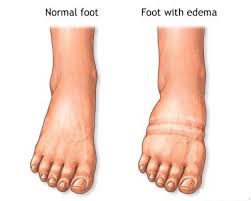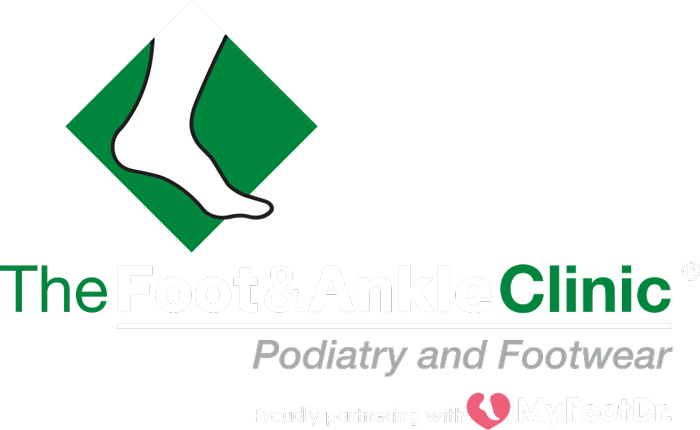Pregnancy Podiatry
Pregnancy triggers many different changes in a woman’s body. Many women have common complaints throughout their pregnancy. One of these complaints, often overlooked, is foot pain. Due to the natural weight gain during pregnancy, a woman’s center of gravity is completely altered. This causes a new weight-bearing stance and added pressure to the knees and feet.
Many women may also experience leg cramping and varicose veins due to weight gain. Because of this, it is important for all pregnant women to learn more about foot health during their pregnancy to help make this nine month period more comfortable for them. Two of the most common foot problems experienced by pregnant woman are over-pronation and oedema. These problems can lead to pain at the heel, arch, or the ball-of-foot. Many women may also experience leg cramping and varicose veins due to weight gain.
One of the key hormones involved in pregnancy is relaxin. Relaxin is thought to be involved in each of the three trimesters of pregnancy. Toward the end of pregnancy, it is thought that relaxin softens the ligaments around the hips and pelvis in order to improve pelvic mobility. While this assists in delivering your baby, it can cause the ligaments elsewehere in your body to become more flexible also. In the case of your knees, ankles and feet, this means that you may not be as stable as you once were.
Another factor to consider is the fact that when you are pregnant, you have to carry more weight around. The weight of your baby, amniotic fluid and the fluid that you retain all contribute to an increase in the load on your body. In normal circumstances, your body may be able to tolerate weight gain without breaking down and developing an injury. But when combined with the effects of the hormone relaxin, you may be more likely to develop a soft tissue injury. This is because your ligaments are not as strong as they were previously, and they are subject to more work / load. As a result, you may see postural changes in your feet and legs, and the change in demand on your muscle may increase muscle aches and tension.
Overpronation
One common postural change is flat feet (over-pronation). It occurs when a person’s arch flattens on weight bearing, causing their foot to roll inward when walking. In some cases, the effect of over-pronation can make walking very painful and can increase the strain on the feet, calves and back. Over pronation occurs during pregnancy because relaxin decreases the stability of the medial ankle and plantar arch, and the added load from pregnancy weight gain.
In some cases, flat feet can stress the plantar fascia (plantar fasciitis), the fibrous band of tissue that runs from the heel to the forefoot. The tibialis posterior muscle (medial stabilising muscle of the ankle and foot) can also be affected. If you are experiencing problems due to over-pronation it is important that you treat it not only for pain relief but also to prevent other foot conditions from developing such as Plantar Fasciitis, Heel Spurs, Metatarsalgia, Post-Tib Tendonitis and/or Bunions. Most of these conditions can be treated conservatively without the need for medications or surgery. Typically, they involve either a custom or “ready-made” orthotic. These orthotics should be designed with appropriate arch support to correct the over-pronation and improve comfort, and can be fitted and purchased from your Podiatrist. Proper fitting footwear is also very important in treating over-pronation. Choose comfortable footwear that provides extra support and shock absorption.
Oedema – Hot and Swollen Feet
Swelling in the feet otherwise referred to as oedema, normally occurs in the latter part of pregnancy due to a number of changes that occur within the body. Increased blood volume, extra pressure on the blood vessels in the legs and pelvis and increased water retention all have an effect.

Hot and burning sensations in the feet are also very common in pregnancy, not only due to a sudden increase in weight and swelling, but because of hormonal changes that cause a slight increase in body temperature. Many pregnant women report that their feet can become hot and irritable as they grow tired even leading to a loss of sleep in extreme cases. It should be mentioned though that there are other more serious conditions that can cause these symptoms so if you have any concerns you may like to have it assessed by your podiatrist to rule out any other potential causes.
Pregnancy related swelling in the feet can be minimized by the following methods:
- Elevate your feet as often as possible. If you have to sit for long periods of time, place a small stool by your feet to elevate them.
- Wear proper fitting footwear. Footwear that is too narrow or short will constrict circulation.
- If swelling becomes a big problem you may need to have your feet measured several times throughout your pregnancy. They will probably change sizes.
- Wear seamless socks that do not constrict circulation such as those designed for diabetics.
- Compression garments and hosiery worn during pregnancy can prevent excessive fluid retention and oedema as well as provide needed support while preventing muscle fatigue and aiding recovery.
- If you are driving for a long period of time, take regular breaks to stretch your legs to promote circulation.
- Exercise regularly to promote overall health; walking is the best medicine.
- Drink plenty of water to keep the body hydrated. This helps the body retain less fluid.
Cooling foot gels, foot spas and regular bathing of the feet, followed by wearing open toed shoes when able will help to keep feet feeling cool and refreshed.
Footwear
Comfort is of the essence when you are pregnant to ensure a smooth and enjoyable pregnancy. Good quality and comfortable footwear is essential. If your job requires you to wear heels, try a lower, broader heel. If you are having problems finding comfortable shoes, a Podiatrist may be able to point you in the right direction by assessing your feet.

Footcare
Due to the additional stress put on feet during pregnancy, hard skin (callus) often results. Many women enjoy the chance to sit back and have their feet pampered at these times. However, callus should be treated by a registered Podiatrist if required to make sure you don’t get any infections that could impact your health. The advantage of seeing a podiatrist is that whilst there you can also safely have your nails done which is always greatly appreciated when your feet become harder to reach.

Podiatrists at The Foot and Ankle Clinic have vast experience in preventing, treating and providing support to women with foot and ankle problems experienced during pregnancy. We also prescribe and supply a wide range of treatment aids to assist with this condition.
At the Foot and Ankle Clinic our highly qualified team of Podiatrists are all members of the Australian Podiatry Association and offer a combined 50 years’ experience. They are trained to diagnose and effectively treat podiatry issues relating to pregnancy via a range of treatments.
Put your feet in our hands! See us today in Chadstone, Moe, Sale, Traralgon, Warragul & Online Store and Retail Enquiries. NO REFERRAL NEEDED!.


